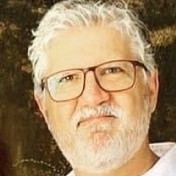There are those occasions that as you’re describing your health, it feels like you’re talking about someone else. It is more of a clinical conversation and not so much your own personal reality.
That seems to be the majority of the time for me recently.
My wife, Beth, and I had planned to trek Mt. Kilimanjaro in Tanzania in the Summer of 2022 to celebrate her teaching retirement and to cap off my ‘gap year’ from corporate life. Throughout the pandemic, we spent months researching, training and equipping ourselves to be ready for summiting the legendary Kilimanjaro.

But in late April, I experienced a cerebral hemorrhage (brain bleed) that detoured our expedition and set me instead on a direct course for brain surgery.
Since then, through multiple MRIs, CT Scans and a brain angiogram (google that one!), there have been ups (“Your bleed has fully resolved…”) and downs (“…but we found a spot on your brain that we want to investigate further.”)
That ‘spot’ is an abnormal formation of blood vessels (brain dAVF) that significantly increases the chance for additional bleeds and stroke. Click here for a great description from the Mayo Clinic.
An awesome team of neurologists from Carolina Neurosurgery and Spine has recommended an endovascular embolization procedure as the best treatment and we’re now waiting for it to be scheduled.
Similar to the heart cath procedure, they will insert a catheter into the femoral artery in my leg, and wind their way through a series of arteries from there all the way to the exact spot of the dAVF in my brain. There they’ll release polymers (basically medical superglue) to block the flow of blood through the abnormality, rerouting it through the typical artery-capillaries-vein sequence.
OK — you have to admit that’s kind of cool, right? How many people get to super glue their brain? And if that doesn’t adequately resolve the issue, then open-cranial surgery will be the follow-up.
If you’re thinking that I sound excited to have brain surgery — then you’re right. I am. While it is certainly something I would rather avoid altogether (and I am admittedly nervous about it), I have to acknowledge that we live in a time when the probability of certain major health issues can be predicted, addressed and resolved before they happen. Not the case in previous generations.
So it’s not a matter of “I have to have”, but “I get to have”. Yes, it calls into question our ability to trek Kilimanjaro. And yes, it slows down my return to the workforce. But yes, I’m so very grateful that it’s available and will help avoid an even more serious setback.
For many years now, our family motto has been “God knows. Trust.” It was first whispered by my son to his wife as he was being wheeled into one of the numerous surgeries following his traumatic brain injury. (You can read their story here.) Through the years, we’ve seen them bravely and faithfully live out this motto in times of distress and uncertainty.
Now it’s Pops’ turn to do the same. I walk confidently into this season of life knowing with certainty that my trust is well-placed in the One who knows me best and loves me most. And I’m grateful that I get to have brain surgery.

No comment yet, add your voice below!